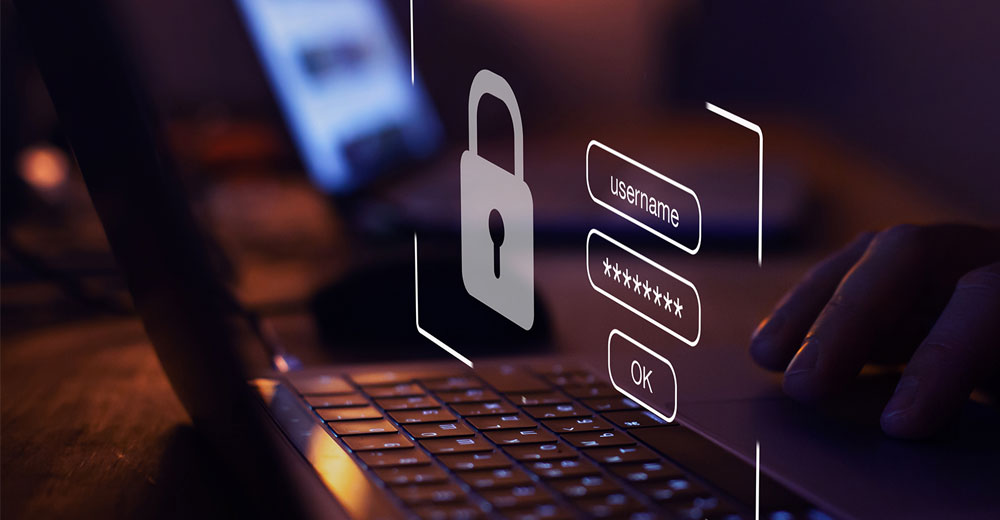
Few shoppers take sturdy action to safeguard their privacy and identities when receiving a knowledge breach notice, in keeping with a report by the fraud Resource Center and analysis firm DIG.Works.
The report, supported a survey of one,050 U.S. adult shoppers, found that sixteen % of the participants within the analysis took no action when receiving notice of a knowledge breach touching their accounts. info from broken accounts are often used for identity fraud or to form employers prone to cyberattacks, as well as ransomware and business email compromise (BEC) scams.
What’s additional, but 0.5 the participants (48 percent) modified the words on the accounts plagued by the breach, ANd solely twenty two % modified all their passwords when they were notified of an attack.
“When we have a tendency to asked the sixteen % why they didn’t act after they received a knowledge breach notice, twenty six % aforesaid their knowledge is already out there, and that they can’t do something regarding it,” aforesaid Eva Velasquez, president and corporate executive of the ITRC, a San Diego-based non-profit organization supported to supply fraud victim help and shopper education.
“But there area unit actions they’ll take, counting on what knowledge was compromised, that may facilitate them minimize their risk,” she told TechNewsWorld. “We’re not doing an honest job of explaining that.”
Ignorance and Apathy
Velasquez additional that seventeen % of the shoppers World Health Organization failed to act after they received a breach notice didn’t recognize what to try to to after they received it and fourteen % thought the correspondence was a scam.
“When we glance at those reasons, it lets North American nation recognize that however we have a tendency to give notice folks, however we have a tendency to gift that info, is totally ineffective, and that we have to be compelled to appraise however we’re informing those that their knowledge has been compromised during a breach,” she said.
Another twenty nine % of these not working on a breach notice believed that it absolutely was up to the organization broken to deal with the problem. “That’s not true,” Velasquez ascertained, “so there must be additional communication regarding wherever that responsibility begins and ends.”
“Receiving notification that your personal knowledge has been taken is chilling, however apparently not chilling enough to try to to something important regarding it,” quipped Saryu Nayyar, corporate executive of Gurucul, a threat intelligence company in El Segundo, Calif.
“Part of this issue,” she told TechNewsWorld, “is that users default to thinking that nothing dangerous can happen to their accounts.”
Ray Pugh, security operations manager for Expel, a SOC as a service supplier inHerndon, Va. in agreement that content and apathy might play a task in ignoring knowledge breach notices.
“Some users might not totally perceive what a knowledge breach notification actually suggests that and what the implications area unit,” he told TechNewsWorld, “while others perceive the scope however became apathetic to the subject.”
Growing pessimism
The number of shoppers ignoring knowledge breach notices shouldn’t be shocking as a result of the dearth of coaching offered to them on the topic, maintained James McQuiggan, security awareness advocate at KnowBe4, a security awareness coaching supplier in Clearwater, Fla.
“If they suffer a breach, most users can believe they’re weak and will not recognize World Health Organization to contact,” he told TechNewsWorld.
“Without any correct coaching or awareness — that isn’t straightforward to seek out, unless they work for a company that has it — many of us don’t find those skills,” he told TechNewsWorld.
John Gilmore, director of analysis at Abine, a privacy solutions company inBoston, noted that the ITRC/DIG findings area unit in keeping with similar studies free this year.
“About eighty five % of shoppers can say they’re very involved regarding on-line privacy and there’s invariably fifteen to twenty % World Health Organization simply don’t care,” he told TechNewsWorld.
He additional that the surveys conjointly notice that there’s a gentle decline in privacy as shoppers move from awareness to action. therefore eighty five % can say they’re involved regarding privacy, however solely seventy nine % can say they’re caning to act to safeguard their privacy and around fifty % will truly act on their privacy issues.
When it involves shoppers World Health Organization area unit proactive in protective their privacy, he continuing, the needle dips even further: around thirty %.
“People area unit terribly skeptical regarding these items,” he said. “They’ll pay time modifying privacy settings, however at constant time they’ll say they don’t assume it makes abundant of a distinction.”
“It’s a part of a growing pessimism within the public regarding the sincerity of establishments to try to to what they are saying they’re about to do,” he added.
Avoiding Credit Freezes
The ITRC/DIG survey conjointly disclosed that when being notified of a breach, solely 3 % of respondents aforesaid they place a credit freeze in situ to dam the creation of recent accounts that need credit checks like new loans, credit cards and alternative major purchases.
Velasquez acknowledged that accounts don’t got to be frozen for each knowledge breach.
“If you’re a part of a breach wherever usernames and passwords area unit the info that’s broken, your initiative shouldn’t be to freeze your credit,” she said. “That wouldn’t build any sense. Your initiative would be to alter your user names and passwords.”
“On the opposite hand,” she continuing, “if Social Security numbers and every one the info needed to open a brand new monetary account in your name are broken, then freeze accounts ought to be above on your disturbance list.”
Pugh noted that customers might draw back from freeze credit as a result of they see it as spare and inconvenient.
“They is also thinking that there have been thousands of individuals concerned within the breach, which they’d rather gage the percentages that the knowledge won’t be leveraged to hurt them in person,” he said.
“Freezing accounts are often additional bother than it’s value as a result of you’ve got to travel back and unfreeze the accounts at some purpose and there’s an entire rigmarole attached that,” Gilmore additional.
“Most folks area unit willing to roll the dice,” he continuing. “It’s not definitely worth the time.”
Reusing Passwords
On the word front, the ITRC/DIG researchers found that solely fifteen % of respondents claim to use distinctive passwords for every of their accounts.
The remaining eighty five % admitted to reusing passwords on multiple accounts, though some claimed a still risky follow of mistreatment variations of constant word on totally different accounts.
In addition, solely eight % of respondents aforesaid they closely guard their passwords as some way of preventing fraud and fraud.
“It is convenient and easier to use constant word than having to recollect totally different passwords,” noted McQuiggan.
“Users area unit told to form sturdy passwords and invariably check links, however this can be a habit foreign to them,” he explained. “They conjointly believe they in all probability won’t get hacked as a result of they are doing not have something the cybercriminals would need to steal.”
“Complex passwords area unit exhausting to recollect, and resetting a forgotten word could be a pain that busy folks area unit trying to avoid,” additional Pugh.
The days of compromised passwords, though, is also numbered.
“In general, the password, as an idea, is on the resolution,” Gilmore aforesaid. “It’s been around too long and straight away, ample folks area unit trying around for methods to switch it.”





Hi, I do think this is a great website. I stumbledupon it 😉 I’m going to revisit yet again since i have book-marked it. Money and freedom is the greatest way to change, may you be rich and continue to help others.